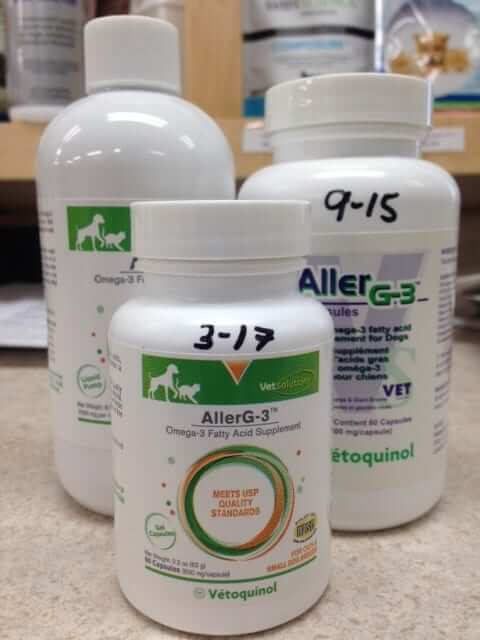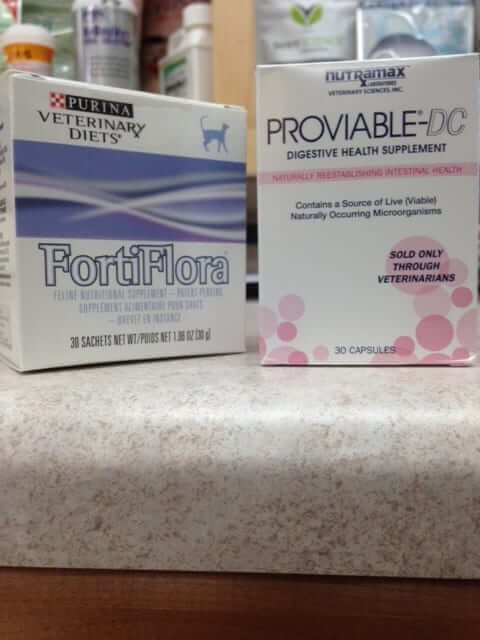Although there are many other supplements on the market to add to your pet’s daily diet (including vitamins, enzymes, botanicals, herbs), only fish oils, joint supplements and probiotics have sufficient evidence for us to recommend their routine use. The vital questions then become which ones for which pet and how much you need to give.

Fish Oil Supplements
Omega 3 EPA & DHA have better evidence in human and pet literature than practically all other supplements combined. The challenges, however, are delivering an effective anti-inflammatory dose in a convenient, cost-effective way.
The active ingredients are the fatty acids EPA (Eiscoapentanoic acid) and DHA (Docosahexanoic acid) which are grouped with the Omega 3’s oils but are actually unique in many ways.
We have just found an over the counter human capsule that delivers a whopping 700mg of EPA per capsule making it one of the easiest ways to get an effective dose to help arthritis, skin, or the long list of other benefits.

Joint Supplements
There are literally hundreds of products commonly available for pets online, at pet stores and supermarkets, and are frequently added to pet food and treats.
Considerable confusion exists as far as effectiveness & appropriate form/dose as they are NOT FDA regulated drugs. The only evidence-based active Ingredients are Glucosamine HCL, Na Chondroitin sulfate, Avocado Soybean Unsaponifiables (ASU) and Perna green-lipped mussels. The level found in various products varies drastically.
Nutramax makers of DASUquin (r) just announced the completion of a force plate study that shows their product similar in effectiveness to nonsteroidals like Rimadyl.

Probiotics
Third, only to joint supplements and fish oils (very parallel to human health), probiotics are emerging as one of the most important supplements to consider for your pet. They are used to normalize the digestive tract by adding healthy bacteria to provide nutritional benefits, protect the immune system and support the normal bacterial balance.
Cutting edge evidence for the use of probiotics in pets just presented at the Wisconsin Veterinary Medical Conference by Dr. Joe Bartges DVM DACVN Ph.D. & Dr. Deb Zoran DVM DACVIM Ph.D. who support the theory that multi-strain and high levels are important.
Dr Zoran informed the veterinarians and their staff present that protecting cats in particular from harmful intestinal bacteria using probiotics was one of the most promising things we can do to treat & prevent inflammatory bowel disease(IBD), pancreatitis, and cholangitis (a liver stasis problem) All three have been linked to bacteria through DNA mapping a surprise to many in attendance.
We just found out about a human product VSL3.com that has 450 billion colony forming units (CFU’s) per packet (Our favorite capsule has 5 billion).

